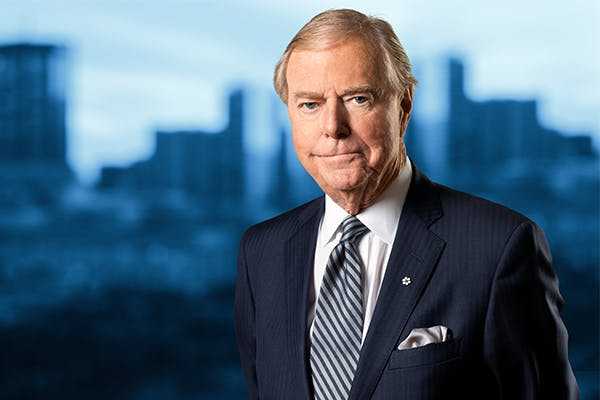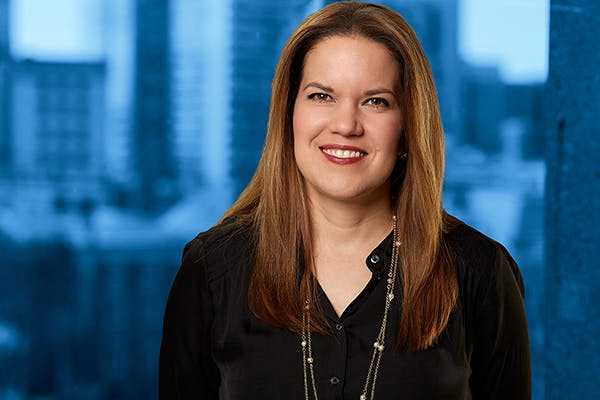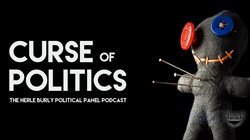New Brunswick's first-ever carbon tax rebate is on the way. Here's how it works
4 years after New Brunswickers started paying a price on carbon, Ottawa’s sending the money back
SPECIAL LIVE EPISODE: Putting "cuss" in discuss at the CPBI | Curse of Politics
Welcome to St. Andrews!
It
is with much joy and happiness that we welcome you to the 19th annual
CPBI Atlantic Regional Conference. Our theme, “On the Border of Change”,
reflects not only the location of our event, but the true reality of
our lives post pandemic. We are faced with many challenges and
opportunities within the pensions and benefits industry, and allowing
ourselves to acknowledge, accept and adjust to these changes to do what
is best for our employees will be key as we move forward.
The
Algonquin is a great back drop to bring together our friends and
colleagues in this changing environment. Our committee of volunteers
have put together an array of speakers, forums and even a LIVE podcast
that will enable you to be informed and educated on the latest topics in
our industry. We intend on taking full advantage of the St. Andrews
experience to enhance your involvement in our conference. We will
continue to show our true Atlantic hospitality as we provide networking
and social activities unique to this region.
Click here for Complete Conference Program
We
look forward to connecting with you for this annual demonstration of
Atlantic comradery. We have everything in place, so now it is a mater of
setting aside the dates of October 4 – 6 to join us at the charming The
Algonquin Resort, St. Andrews by -the-Sea.
Sincerely,
Steve Cameron and Ron Cashin
2023 CPBI Atlantic Conference Co-Chairs
FORUM B: Thursday PM |
Curse of Politics LiveThe Herle Burly Political Panel Podcast Hosted by David Herle Panelists: Scott Reid, Jordan Leichnitz & Kory Teneycke
|
THANK YOU TO OUR 2023 CONFERENCE SPONSORS
.png?mw=265)
.png?mw=200)

.jpg?mw=160)





Kelly Lightfoot
Regional Administrator
Fax.: 514-288-1225
Email: info@cpbi-icra.ca
 |
The Normani Drag Show Thursday, Oct.5, 2023
|
"How goddamn awful it is" | Curse of Politics
20 Comments
Advice for the opposition: Drop the drive-by smears and focus on the real questions
Tools to cut out political corruption must be kept sharp, so let’s not dull them with false accusations
I understand for many Canadians that is like admitting you are something between a divorce lawyer and a serial killer.
There are lots of stereotypes in my industry. We are all pigs smoking cigars and slapping the backs of politicians for political and financial benefit. It's a Hollywood trope. It's easy for the opposition to attack and easy for the media to report.
But stereotypes don't always ring true. That goes for political scandals as well.
It must be said: There are people of good faith in every political party, who don't tolerate political corruption. And that is a very good thing. Put me at the front of the line if it's time to condemn someone for engaging in it. Always.
But the weapons used to slay political corruption must be kept sharp. Dulling them unnecessarily with false accusations should be avoided at all costs.
 Telford,
second from left, chief of staff to Prime Minister Justin Trudeau,
takes part in a meeting with Trudeau, right, and Chinese Premier Li
Keqiang, not pictured, in the cabinet room on Parliament Hill on Sept.
22, 2016. (Sean Kilpatrick/The Canadian Press)
Telford,
second from left, chief of staff to Prime Minister Justin Trudeau,
takes part in a meeting with Trudeau, right, and Chinese Premier Li
Keqiang, not pictured, in the cabinet room on Parliament Hill on Sept.
22, 2016. (Sean Kilpatrick/The Canadian Press)
And my fear is that is happening in the case of the Rob Silver-Katie Telford-MCAP controversy — the accusation that the Trudeau government gave the administration of the federal rent subsidy program to a private company that employed the husband of Justin Trudeau's chief of staff.
Let me also declare that I am a conservative and I don't like Liberals much. I have spent my entire career trying to defeat them at the polls at every level of government I can. On top of that, Silver's old firm is a competitor of mine. And nothing would please me more in the world than a Liberal scandal that tangentially implicates a competitor. I salivate at the thought.
Unless, of course, it is at its core untrue — because I dislike true political corruption even more.
Ottawa is a village and I have casually known both Silver and Telford for years. We're not friends, but we do know each other. I have also known Trudeau in passing since the mid-1990s when he was a student at McGill, although I doubt he remembers. I have also spent much of my professional life trying to prevent him and his party from winning power, and would defeat them tomorrow if I could.
But who cares? That isn't the point. At least I hope not.
I think there is sufficient evidence something is amiss in the outsourcing of the federal government's student volunteer grant program to the WE Charity to warrant deep scrutiny and criticism. But just because there is one potential scandal doesn't mean every other government outsourcing is a scandal.
In fact, as a conservative, I wish government outsourced more program delivery to the private sector. I believe they generally deliver programs with less administrative cost than government can, resulting in more money going to those the programs are intended to assist. The decisions around who administers these programs should be made on their own merits, not because of political affiliation of those associated with the organizations chosen.
This is a very long preamble to what I actually want to say, which is: I don't see a scandal in the awarding of the rent subsidy program to MCAP.
In fact, I think the insinuation that there is a scandal there sets us back on the scrutiny of potential conflicts, including the ongoing questions around the student volunteer grant program and the WE deal.
Silver, the husband of Trudeau's chief of staff, used to be a lobbyist. When the Liberal government won power in 2015, and his wife went to work in the Prime Minister's Office, he was a partner in the lobbying firm Crestview Strategies. Without waiting for direction from the ethics commissioner or the commissioner of lobbying, Silver chose to leave the company and sell his shares.
Despite the fact his continued involvement in the company would likely have been worth millions of dollars to himself — he chose to leave. When he stepped down at the time, Silver indicated that remaining an employee or shareholder in a government relations firm that does federal work would create too many potential conflicts for his spouse, Telford, and he chose instead to step aside.
When Silver joined MCAP in January, Telford proactively solicited advice from the conflict of interest commissioner. She also recused herself from any decisions involving MCAP (something Trudeau has acknowledged he should have done on the awarding of a huge contract to WE).
The contract to MCAP was not sole-sourced — rather, it was won through a competitive process managed by the professional public service.
And, finally, Silver himself was not involved in the negotiations for the project.
So unless some damning information as yet undiscovered comes forward, it would be wise for the opposition to focus on the WE scandal and not dilute its credibility by engaging in a drive-by-smear on Silver — someone who has been the gold standard of ethics.
- This column is part of CBC's Opinion section. For more information about this section, please read our FAQ.
CBC's Journalistic Standards and Practices

If you’re in a tough fight, Kory is the guy you want on your side.
With two decades in public affairs, Kory has served as the Director of Communications to the Prime Minister of Canada, managed the cable news channel “Sun News”, and served as Executive Director of the Renewable Fuels Association. Kory was the manager of the 2018 and 2022 campaign that saw Doug Ford become Premier of Ontario and is the leading force behind the Premier winning a second term, increasing the Ontario PC Party's majority.
https://www.youtube.com/watch?v=VxK3alvUgTI&ab_channel=AirQuotesMedia
SPECIAL LIVE POD: David and Scott bid Jenni farewell! | Curse of Politics
3 Comments

Jenni Byrne is one of Canada's leading voices in public affairs. She is regularly featured on every major Canadian news network and Canada's biggest political podcast, The Herle Burly.
David Herle is a Canadian political consultant and Principal Partner at leading polling and research firm, The Gandalf Group. He is also a regular CBC commentator.
David Herle received his Bachelor of Arts from the University of Regina and was called to the Bar in Ontario after receiving his LLB from the University of Saskatchewan.
Herle worked on John Turner's leadership bid.
Herle was previously a senior partner at Earnscliffe Strategy Group and a top advisor to former Prime Minister Paul Martin. He was Liberal Party of Canada campaign co-chair for 2004 and 2006. During the 2004 election, as prospects for the Liberals began looking poor, Herle was a strong advocate of attacking Martin's primary opponent, Stephen Harper. In the 2006 election, a similar strategy did not result in similar success.
Herle was managing co-chair for Ontario Premier Kathleen Wynne's successful reelection campaign in 2014 and again in 2018 when the Ontario Liberals finished in third place. During the several years that Herle worked for the Ontario Liberal government, his firm was paid $3.4 million.[1][2]
David Herle is now the host of The Herle Burly podcast.
https://www.cbc.ca/news/politics/canada-election-2015-jenni-byrne-tossed-1.3280702
Jenni Byrne tossed from Stephen Harper's inner circle
'She's a lightning rod, partly because of her personality, but also because she's a woman'
- ANALYSIS l Harper's legacy: Good, bad and a dose of ugly
- ANALYSIS | After Stephen Harper, who will lead the Conservatives?
- INTERACTIVE | Explore election results from across the country
- LIVE BLOG | Post-election day coverage
That plan will unfold this week, as Conservative politicians and the party's rank-and-file look to a future leadership race — only the merged party's second — putting the pieces in place to move forward and rebuild from a devastating election loss.
 Public
Works Minister Diane Finley speaks during question period in the House
of Commons on Parliament Hill in Ottawa. Sources say Finley could be
tapped to be the interim leader of the Conservatives. (Adrian Wyld/Canadian Press)
Public
Works Minister Diane Finley speaks during question period in the House
of Commons on Parliament Hill in Ottawa. Sources say Finley could be
tapped to be the interim leader of the Conservatives. (Adrian Wyld/Canadian Press)
Harper was calm about the defeat that lay before him, according to sources who spoke to The Canadian Press over the past 24 hours. He sat alternately with longtime aide Ray Novak, and party president John Walsh on the plane.
There are two main things that will happen right away — Harper will resign as leader, but stay on as an MP. The party's much smaller caucus will vote for an interim leader. Former cabinet minister Diane Finley's name is an early name being floated.
Then, the party's national council will appoint a "leadership election organizing committee," which will set the ground rules for the impending contest.
'Harper's party' facing upheaval
All these things will send the party into a period of upheaval — this was the party Harper built, filling positions with loyalists over the years to such an extent that there was barely a murmur of discontent in 12 years.
At the same time as the leadership race is set in motion, the activists are in the process of sorting through the embers of the campaign, analysing what went wrong and who is to blame.
The party's executive director, Dustin van Vugt, is in charge of a process to review the campaign.
A senior party source said the party will be in debt after this election is through, something the members aren't used to.
As far back as Thursday, campaign manager Jenni Byrne was packing up her office in the Ottawa party war room. In a sign of how tense things have become inside Harper's circle, Byrne was not in Calgary on election night, and is out of a job as of Monday morning.
During the campaign, sources say longstanding friction between Byrne and campaign director Guy Giorno just became worse, and the two strong personalities clashed on elements of the campaign. One insider said Byrne refused to hand over a list of candidate contact details to Giorno in the final days.
Bad blood among top aides
Eventually, their hostility spilled over into bad blood between Byrne and Novak, who is the person Harper trusts the most.
 Party
sources say Jenni Byrne doesn't deserve all the blame for the
Conservative Party's failed campaign, because she managed the victory in
2011. (Sean Kilpatrick/Canadian Press)
Party
sources say Jenni Byrne doesn't deserve all the blame for the
Conservative Party's failed campaign, because she managed the victory in
2011. (Sean Kilpatrick/Canadian Press)
"There's a tremendous amount of antipathy towards her on the part of the leader," said one source.
"You don't run a campaign by surrounding yourself by sycophants, interns and family members," grumbled another.
But there are different ideas of why the campaign did not succeed. Some point to failings in the nuts and bolts organization of the campaign, while others believe the problems centred around the leader himself and his choice of message — factors no local candidate could control.
A source close to the war room said the party's focus groups and voter research had told them that the die was cast before the campaign began. Conservative voters "were sick of the PM and had a hard time voting for him."
"The feeling from Jenni as the campaign manager is that this was lost from the get go," said the source, who asked to remain anonymous.
"They underestimated people's feelings about the PM, that there was a stronger desire for change than they realized."
Dan Miles, a senior aide to outgoing finance minister Joe Oliver, said it was clear in the riding that voters were looking for change. Oliver lost his Eglinton-Lawrence riding in a near Liberal sweep of the Greater Toronto Area.
"The only negative I really ever heard was that they liked Joe, but they had a problem with the leader," said Miles.
"That was the only consistent thing I ever heard."
Meanwhile, the leader's message on the economy wasn't resonating as well as they suspected. The Liberals ate into some of that territory with voters who liked the promise of infrastructure spending. Liberal Leader Justin Trudeau performed better than expected during the debates.
The niqab issue raised by Harper dealt a blow to NDP Leader Tom Mulcair in Quebec, but it also seemed to wound the New Democrats elsewhere.
"That policy and so many others resonated positively with some voters, and negatively with others," Oliver said in a scrum.
"I think that, and maybe some other policies, were responsible for the collapse of the NDP, which had a very significant impact on the national results."
Jason Kenney: We needed 'sunnier' conservatism
Calgary Conservative MP Jason Kenney, widely believed to be a serious leadership contender, alluded to problems with the party message. Trudeau had focused on optimism, while Harper issued dire warnings of bleak economic times and terrorist threats.
 Conservative
MP Jason Kenney holds a news conference to discuss the NDP's spending
plans, in Ottawa. Kenney says the campaign needed to promote a 'sunnier'
brand of conservatism. (Fred Chartrand/Canadian Press)
Conservative
MP Jason Kenney holds a news conference to discuss the NDP's spending
plans, in Ottawa. Kenney says the campaign needed to promote a 'sunnier'
brand of conservatism. (Fred Chartrand/Canadian Press)
"We need a conservatism that is sunnier and more optimistic than what we have sometimes conveyed," Kenney said.
"We have to take collective responsibility for that."
On the other side, there are those who believe the party's losses can be attributed to poor preparation.
That would include the training of local volunteers, the recruitment of candidates, convincing incumbents to run again, and vetting candidates. The conclusion is that the party didn't take enough advantage of natural advantages of being in power, of having a huge war chest and its wealth of experience from previous campaigns.
"In this case I fear that, like all parties in power, we got fat and happy," said Chad Rogers, a party loyalist who volunteered during the 2006 campaign, then run by the late Doug Finley.
"This campaign was not as lean, as focused or as aggressive as the ones that preceded it. A lot of candidate and campaign managers that I've been talking to informally were very surprised that things we were good at, just weren't done this time."
Rogers said there would be questions asked about how money was spent, especially the abandoning of a new, multi-million voter identification system two years ago.
Other Conservatives said the party hasn't kept up with the times on the latest research methods and technology.
The source close to the war room said that it will be unfair to lay the blame all on Byrne, who also led the successful 2011 campaign.
"She's a lightning rod, partly because of her personality, but also because she's a woman," said the source. "She's going to bear the brunt of a lot of knifing because she's a woman at the top of the food chain."
Jenni Byrne
CEO

Jenni Byrne + Associates is Canada’s leader in public affairs and a trusted advisor to CEOs and Executive teams when they need strategic guidance on their most challenging issues.
Our team have worked in the highest corners of Parliament Hill, Queen's Park, and legislatures across Canada.
Our CEO and co-founder, Jenni Byrne served as the National Campaign Manager and Deputy Chief of Staff to Prime Minister Stephen Harper and was named "the most powerful woman in Ottawa" by the Globe and Mail.
At Jenni Byrne + Associates, we help organizations in Canada and around the world shape public policy and influence the media landscape. Our firm’s winning track record has attracted a clientele from the Fortune 500, international law firms, leading financial institutions, cannabis and fintech start-ups, healthcare providers, and many more.
24/7 Crisis Management & Response
Your most precious asset is your reputation. We protect it.
The Power List: Top 10 Political Backroomers
The aides, advisers and campaign geniuses behind the big names

These are the aides, advisers and campaign geniuses behind the big names. Check out the full 2023 Power List here.
MORE: See who made the 2023 Maclean’s Power List
1. Jenni Byrne knows how Canadians think— and how they vote
Jenni Byrne + Associates

Click here to find out why Byrne gets the top spot
2. Katie Telford is for keeping Trudeau on track—and in office
Chief of staff, PMO
 Telford is the most powerful staffer in Ottawa, with nearly eight years under her belt as Justin Trudeau’s
top lieutenant and campaign wizard. During that time, she’s come up
against—and easily quashed—such milquetoast opponents as Andrew Scheer
and Erin O’Toole. Now she’s facing off against a more potent adversary
in the form of Pierre Poilievre
and his dynamo adviser Jenni Byrne. So far, Telford’s coming out on
top: in December, her ground game won out against Byrne’s in the
critical Mississauga–Lakeshore by-election, where Charles Sousa held on
to the seat for the Liberals. With a possible election in mind, she
started this year by shuffling top parliamentary aides, bringing in Sean
Mullin, an economic adviser, and Alana Kiteley, a key staffer on the
NDP-Liberal supply-and-confidence file—a deal that Telford was
instrumental in striking last year.
Telford is the most powerful staffer in Ottawa, with nearly eight years under her belt as Justin Trudeau’s
top lieutenant and campaign wizard. During that time, she’s come up
against—and easily quashed—such milquetoast opponents as Andrew Scheer
and Erin O’Toole. Now she’s facing off against a more potent adversary
in the form of Pierre Poilievre
and his dynamo adviser Jenni Byrne. So far, Telford’s coming out on
top: in December, her ground game won out against Byrne’s in the
critical Mississauga–Lakeshore by-election, where Charles Sousa held on
to the seat for the Liberals. With a possible election in mind, she
started this year by shuffling top parliamentary aides, bringing in Sean
Mullin, an economic adviser, and Alana Kiteley, a key staffer on the
NDP-Liberal supply-and-confidence file—a deal that Telford was
instrumental in striking last year.
MORE: Katie Telford on life inside the PMO
3. Leslie Church is the deputy’s deputy
Chief of staff, deputy prime minister’s office
 If Deputy PM Chrystia Freeland
is Trudeau’s second-in-command, then Church is Freeland’s. After a
stint as head of communications and public affairs for Google Canada,
she joined the public service in 2015, where she rose through the
chief-of-staff ranks, running the show for ministers Mélanie Joly,
Maryam Monsef and Anita Anand. She joined Freeland’s office in 2020 as
director of policy, then got the chief-of-staff job after the 2021
election. Church leads Freeland’s team of 30 aides and advisers,
championing Freeland’s priorities (such as climate change and the war in
Ukraine), developing the federal budget and working with private and
public stakeholders to make progress on important agenda items. Church’s
parents were both air-traffic controllers, and she sees her job as
similar to theirs: calmly landing planes while keeping her eye on what
lies ahead.
If Deputy PM Chrystia Freeland
is Trudeau’s second-in-command, then Church is Freeland’s. After a
stint as head of communications and public affairs for Google Canada,
she joined the public service in 2015, where she rose through the
chief-of-staff ranks, running the show for ministers Mélanie Joly,
Maryam Monsef and Anita Anand. She joined Freeland’s office in 2020 as
director of policy, then got the chief-of-staff job after the 2021
election. Church leads Freeland’s team of 30 aides and advisers,
championing Freeland’s priorities (such as climate change and the war in
Ukraine), developing the federal budget and working with private and
public stakeholders to make progress on important agenda items. Church’s
parents were both air-traffic controllers, and she sees her job as
similar to theirs: calmly landing planes while keeping her eye on what
lies ahead.
The Power List: Jenni Byrne, Poilievre’s chief adviser, knows how Canadians think—and vote
Campaigns are no longer about persuading swing voters to like you. They are about motivating your supporters to turn out.

(Photograph by Michael Wilson/CBC)
Political Backroomers
No.1: Jenni Byrne
READ: The Power List: Politics top 10
Pierre Poilievre’s 2022 Conservative Party leadership campaign sold more than 300,000 party memberships. It drew thousands of supporters at rallies in Edmonton and Calgary and more than a thousand to events in Vancouver, Windsor, Ottawa and elsewhere. When the votes and points were tallied, Poilievre wiped the floor with his opponents, cruising to victory with nearly 70 per cent support.
These are wildly impressive figures for a leadership campaign, and they culminated in an impossible feat: uniting the bag of angry cats that is the Conservative Party of Canada, whose factions had spent the seven previous years mercilessly mauling each other. It was a campaign perfectly tailored to Poilievre’s strengths as an orator and a rabble-rouser. And it has put his campaign manager Jenni Byrne back atop the political hierarchy of backroom Ottawa.
MORE: See who made the 2023 Maclean’s Power List
You may remember Byrne as the campaign manager who, back in 2011, delivered to Stephen Harper’s Conservative party its long-desired holy grail: a majority government. You more likely remember Byrne as the campaign manager who, four years later, led Harper’s Conservatives to a crushing defeat at the hands of Trudeau’s Liberals. The party had grown fat and listless, and Trudeau had emerged as a political juggernaut. Nevertheless, a long procession of detractors spent months laying blame for the loss on Byrne’s shoulders and attempting to drum her out of the party. In politics, your adversaries are on the outside but your enemies usually lie within.
Her critics underestimated her. Modern campaigns are no longer about persuading swing voters to like you. They are about motivating your supporters to turn out in larger numbers than your opponents. And no one understands the Conservative base—what they think, how they behave and what will get them out to the polls—better than Byrne. As one senior Conservative says, “Jenni is the base.”
Jenni has spent more than a decade advising Canada’s top Conservative political leaders and candidates
She is also a measure of generational change in that base. The Bill Davis Red Tories and the Mulroney-era coalitionites are extinct. Byrne, the new prototypical Conservative, is cast from a different mould. Born and raised in Fenelon Falls, Ontario (population 2,500), Byrne joined Preston Manning’s Reform Party in 1997. She attended Georgian College and the University of Ottawa but graduated from neither. On more than one occasion, she has travelled vast distances with girlfriends to see Meat Loaf live in concert. She’s not just a Habs fan; she’s a Habs fan who enjoys trolling Leafs fans on Twitter. Byrne used to drive a custom Ford Mustang; now she drives a Bronco Sport. Yet when she lived in Ottawa, she settled downtown and went long stretches without owning a car at all, preferring instead to walk to work—behaviour that’s normally considered progressively urbane.
RELATED: Why is Pierre Poilievre so angry?
She and Poilievre were romantically involved for a brief time, more than a decade ago, but there are obviously no hard feelings between them. Everyone who knows Byrne describes her as fiercely loyal, her ferocity never more evident than when she has been crossed. The people who get on her bad side tend to stay there. When she runs a campaign, she commands whatever room she’s in: she listens to those around the table but is unafraid to end the discussion, make a decision and move on. Even with strangers, Byrne’s view of politics is all about relationships. She knows how to read and understand polling data but sees it for what it is: a view from 30,000 feet, far too abstract. The reams of voter data culled from social media, similarly, are simultaneously intimate yet impersonal. For Byrne, the picture is incomplete without the view at ground level.
Jenni canvassing with Thornhill MP Melissa Lantsman (then a candidate) in 2020
Despite the time pressures of managing a national campaign, she’ll make sure to stop in multiple ridings for an evening of door-to-door canvassing. It’s a task most politicians secretly despise, but Byrne has a passion for it. She brings no head-office entourage in tow and won’t accept any VIP treatment from the local candidate. She visits every home assigned to her, and she’s not the type to argue policy on the doorstep. She asks questions, she listens carefully and she says thank you.
All the while, she’s busy integrating all those conversations, along with polling and fundraising data and social media comments, into the sophisticated political algorithm inside her mind. This used to be called having your finger on the voters’ pulse, but that’s too clinical a phrase. Byrne looks voters in the eye. It’s a different kind of connection, one that’s harder to forsake.
And then she transplants that connection into the candidate for whom she works. With Harper, the graft didn’t always take, but Poilievre’s style is better suited to hers. Whatever role she ends up playing on his campaign team (manager? chair?), she’ll guide him deftly through controversy, calibrating responses that appeal to party stalwarts, and she’ll herd them to the polls like no one else can. Conservative fortunes are on the rise, and no one wants to be on Jenni Byrne’s bad side right now.
Check out the full 2023 Power List her
Harper’s enforcer: Meet Jenni Byrne, the most powerful woman in Ottawa
:format(jpeg)/arc-anglerfish-tgam-prod-tgam.s3.amazonaws.com/public/EQ6T6U5KHFBRPCRCQGYAX2YQBU)
As Tim Hudak prepared for his second and final shot at becoming Ontario's premier, the word went out through Conservative circles in the nation's capital: Do not help this man.
Mr. Hudak, then the leader of the provincial Progressive Conservatives, was a kindred spirit set to run on a right-wing agenda. He had a decent shot at knocking off a Liberal incumbent with whom Stephen Harper had a frosty relationship. And after more than a decade in the political wilderness, his Tories badly needed organizational support from federal cousins who had recently been in the business of winning.
Before Mr. Hudak's first election leading his party, in 2011, such support was forthcoming. The federal Conservatives lent experienced campaign managers for target ridings, shared their volunteer lists, and helped raise money. They even let the provincial Tories use a campaign bus.
But on the final day of that election campaign, before the votes were even counted, Mr. Hudak made a bad mistake that went a long way toward souring his relationship with the federal party: He fired his chief of staff, Lynette Corbett.
Mixed views about whether Ms. Corbett deserved to be let go, after a behind-the-scenes power struggle among Mr. Hudak's senior officials, are beside the point.
What matters is that she's among the very best friends of Jenni Byrne.
There are only a few backroom operators in this country whose bad side needs to be avoided at all costs. And Ms. Byrne – the Prime Minister's campaign manager, his enforcer, his primary connection to his party's grassroots, and one of his longest-serving loyalists – is most emphatically one of them.
"Pretty much from the day Lynette was fired, we couldn't get a phone call returned," recalls a senior member of Mr. Hudak's campaign team. "It pretty quickly became clear this wasn't an issue to be managed. It was a fact to be accepted."
Never mind central support; all but the bravest federal Conservatives were reluctant even to be seen at a Hudak fundraiser, for fear of what it would do to their careers.
It is unclear whether Mr. Harper was fully aware that his party was choking off resources to Mr. Hudak; if he was, he didn't much care. Such is the leeway afforded to the woman who claimed credit for steering the Prime Minister to majority government, and whom he will be counting on to help him hold on to it in this year's federal campaign.
Ms. Byrne's story is a remarkable one, in part because her ascent has been so improbable. In political backrooms that continue to be dominated by middle-aged men with advanced degrees, a young woman from small-town, blue-collar Eastern Ontario, who left nursing school without graduating, has become the ultimate alpha.
It is all the more so because, rarely seen in public, and rebuffing any and all media requests, she has become the closest thing official Ottawa has to an urban legend.
Trying to puncture the air of mystery she has cultivated – to figure out how she attained power, how much of it she really has, and how she wields it – can be confounding.
She did not make herself available for this story, although she did allow several people close to her to talk, and in some cases to respond to criticisms of her. Of the roughly 30 sources who were interviewed – among them, friends and rivals, current and former colleagues, cabinet ministers and senior campaign officials – most were willing to speak only on a not-for-attribution basis, reflecting the culture she has helped to create. And depending on their personal experience with her, and whether they are on her good side or bad, they often contradicted each other about everything from her temperament to her skill set to her relationship with the Prime Minister.
Still, there are a few accepted truths. She is willing to do what Mr. Harper asks of her. She is especially good at "issues management," which means making messes go away. She is valued for her ability to make quick decisions and stick with them, rare for a political operative. She is rarer still for not having blown herself up with one of those. She does not mind playing the bad cop, and might even enjoy it. She is not terribly interested in policy, but presents herself as deeply in touch with the Conservative base, and speaks on its behalf in the corridors of power.
From these, and even from the contradictions, emerges a picture of her impact on the governing Conservatives – their daily agenda and messaging, their rigid commitment to discipline, their internal divisions, their strengths and weaknesses heading into the coming campaign, and their uncertain future beyond that.
Jim Armour, a former communications director for Mr. Harper, suggested that the challenge of this story is "separating myth from reality, and separating Jenni Byrne from Stephen Harper."
But when it comes to Mr. Harper, and Ms. Byrne, and the party she has helped him build, it all gets a bit inseparable.
Staying true to her roots
There is a photo that Ms. Byrne has been known to pull out during high-level meetings and pass around. It shows a little girl proudly standing alongside her father, over a dead deer he has just shot. Her point is that these are the sorts of people who tend not to be seen or heard within the Ottawa bubble, but who need to be top-of-mind for Conservatives. And that, as the girl in the photo, she speaks for them.
"If you want to understand anything about her, you have to understand where she comes from," says Employment and Social Development Minister Pierre Poilievre, whom she dated from her early days in Ottawa until 2011.
It has been about two decades since Ms. Byrne, now 38, left Fenelon Falls, where she grew up. But the Eastern Ontario town of about 1,800 people – the kind of conservative bedrock where guns are good, soldiers are revered, government is viewed with suspicion, and criminals are seen as in need of severe punishment – still very much defines her.
So, too, does her upbringing. Ms. Byrne was very close to her mother, a teacher named Julie who died in 2010 at just 58. But her father, Jerry, was her entry point into politics. A self-employed carpenter who grew up with 10 siblings, he joined the Reform Party in the mid-1990s in protest against the governing Liberals' new gun registry, and his teenaged daughter quickly followed suit.
The perspective with which she came to Ottawa after leaving her hometown will be instantly familiar to those who have witnessed the current government's rigid commitment to certain articles of faith for its base – in some measure because of Ms. Byrne's influence.
She is not, by any stretch, a wonk. Her specialty is operations – making things run properly, and holding people to account – and she has little interest in long policy debates. But during stints in the Prime Minister's Office, as issues-management director and a deputy chief of staff, she has helped to shape daily messaging. In recent years, even when working for the Conservative Party rather than the government, she has usually gone to the morning meeting between Mr. Harper and his senior staff. The PM sometimes turns to her for a gut check, and even when he doesn't, she often inserts herself into the debate.
"Part of her thing is a constant sobriety check," says Yaroslav Baran, a former communications officer for Mr. Harper, who worked with Ms. Byrne. "What are they talking about at the Tim Hortons in Fenelon Falls?"
Asked what issues she may have influenced, several government insiders cited the Omar Khadr file. When the complexities of the former prisoner's legal case led to any equivocating about whether the government should be trying to keep him out of the country or behind bars, she would do her best to shut it down. To the base, he was a terrorist who merited not a shred of sympathy.
As with other causes on which she has been particularly vocal, among them eliminating the gun registry and keeping marijuana possession criminalized, she may have been preaching to the choir. But she manages, at least, to reinforce Mr. Harper's instincts. She has also tried to fight the tendency – a risk for any party in power – to be steered toward the political centre or made technocratic by the machinery of government.
Former foreign affairs minister John Baird, who was not shy about offering what he calls a "robust challenge" to his department's officials, notes that some ministers are less inclined to push back against bureaucrats telling them how things have to be done. When Ms. Byrne felt that compromised the government's priorities or was at odds with public expectations, says Mr. Baird, she would intervene.
At times, she has even argued against putting much public focus on issues Mr. Harper himself is actively pursuing. "She hated trade agreements," recalls a former staffer in the Prime Minister's Office. "Not that she didn't think the government should be doing them. Just, 'Don't overestimate it, nobody outside Ottawa gives a shit.'"
Beyond citing her roots, Ms. Byrne's credibility on these fronts rests with her being the rare political operative at her level willing to get her hands dirty on the ground. "What I love about her most is she'll be there for the high-level meetings, but she'll also go door-to-door with me," says Veteran Affairs Minister Erin O'Toole, with whom she is friends.
Not all Conservatives are quite as sold. To some, her claim to speak for those outside Ottawa looks like a shtick. They roll their eyes at what they see as her efforts to prove she walks the talk, such as her going on a seal hunt in Newfoundland. (Her Facebook profile includes a rather graphic photo from that trip.) They suggest she sometimes conflates her pet issues with Mr. Harper's best interests. And they complain that her influence sometimes has less to do with her expertise than with her loudness.
"Her approach to argument," another former PMO staffer said, "is blitzkrieg."
But then, her aggressiveness is a big part of what got her a seat at the table in the first place – because it is absolutely essential to the primary role she plays for Mr. Harper, which has less to do with life back in Fenelon Falls than with political realities she discovered shortly after leaving it.
A party defined by discipline...
"If you surveyed ministers' offices about what it's like when Jenni Byrne calls you," says one of the former PMO staffers, "it's probably 'butt-clenching time.'"
Most political parties have enforcers. Few have approached that role as ferociously as has Ms. Byrne.
In part, it is a matter of personality. Even as a child, she was strong-willed. She has always had a temper; those who encountered her in politics when she was barely in her 20s say she was rarely afraid of whom she might offend.
Some Conservatives wonder aloud if negative reactions to her reflect a sexist double standard. Being yelled at or threatened or disciplined by senior staff, even getting caught in nasty turf battles with them, has long been one of the pleasures of working in politics; it just usually hasn't been a young woman dishing it out.
"When it's a man in that role, those qualities tend to be seen as 'decisive,' 'no-nonsense,' 'suffering no fools,'" says Mr. Baran, who acknowledges that he and Ms. Byrne didn't always see eye to eye when working together. "When it's a woman, those qualities somehow take on a more nasty and personal tone."
Still, she has helped to instill a culture of fear throughout her party that can be traced to the insights she gleaned about the conservative movement in her early years in politics, and an almost pathological determination she shares with the Prime Minister to avoid returning to the bad old days.
After more than nine years in office, the Conservatives' staffing ranks are filled largely with people who have never known anything other than being in government. Then there is Ms. Byrne, who started at the bottom of the pecking order in a party that no longer exists.
In 1997, when she was studying nursing at Georgian College in Barrie, Ont., she volunteered for the Reform Party's federal campaign. Her reward was to ride around Ontario on a bus with a bunch of other right-wing kids, having abuse hurled at them: "Racist, sexist, anti-gay, Preston Manning go away!"
Kory Teneycke, the long-time backroom operative who has rejoined the Conservative campaign team after serving as a Sun News executive, first got to know Ms. Byrne back then; he, too, was riding that bus, as was Ray Novak, who is now the PM's chief of staff. "The sunnier side of her personality was probably a little more dominant," Mr. Teneycke recalls. "But the toughness was already there."
That toughness would be needed in the years that followed, when Ms. Byrne would be involved in all the tortuous efforts to fashion a right-of-centre alternative palatable to voters. Working her way up from a Reform internship in Ottawa and a stint as the party's deputy youth director, she was in the party's Calgary headquarters as it transitioned to the Canadian Alliance and endured the tumult of the Stockwell Day years and then his ouster in favour of Mr. Harper.
She would earn Mr. Harper's trust by backing him early in the contest to lead the newly merged Conservative Party, when former Ontario Premier Mike Harris (who ultimately decided not to run) was the presumptive front runner, and then fighting for the future PM with her elbows out amid fears that Belinda Stronach's deep pockets would give her the edge.
If there was a constant during all this chaos, it was that discipline – or a lack thereof – kept costing the parties for which Ms. Byrne was toiling, as the Liberals kept besting them. Although the newly merged party had started to get its act together by the 2004 campaign, during which she worked on its Ontario desk, a series of screw-ups showed it still wasn't quite ready for prime time. Bozo eruptions by candidates, Mr. Harper himself veering off script, some shaky resource planning, and general unpreparedness for the scrutiny that came with being close to power – all helped snatch defeat from the jaws of victory.
The reaction to that defeat was both swift and lasting. The Conservatives would prize discipline above almost all else; their political culture would become almost militaristic in nature. And nobody other than Mr. Harper himself would be more responsible for it than Ms. Byrne.
Starting with the preparations for the 2006 election, by which point she was the Conservatives' deputy national campaign manager, her responsibilities included making sure candidates wouldn't cause embarrassment. That meant vetting them, training them, heading off any controversies they might get themselves into, and putting the fear of God into them about making mistakes in the first place.
It was a task to which Ms. Byrne, whom Mr. Teneycke describes as "able to out-interrogate a Mossad agent," would prove ideally suited. And she would continue to carry it out once those candidates were elected.
When working in government, she expects caucus members and staffers to be rigorously prepared, and can be merciless when they're not. Although she is not known to veer into personal insults, the tone, as one former colleague put it, is "Prove to me you're not incompetent." It is much the same in her dealings with party staff in Ottawa, and with organizers across the country.
Ms. Byrne yells a lot, but that's only a part of what makes her intimidating. Because she has the PM's ear, and strong influence over personnel decisions, it is well known that getting on her bad side can be a career killer.
Although she tends to go easier on them than she does on staffers and backbenchers, she has helped to create an atmosphere in which even relatively senior ministers appear terrified of venturing from their tightly scripted talking points. Beyond creating a recognition of the need for professionalization, what happened in 2004 and the campaigns before left some Conservatives with discomfort verging on paranoia toward both mainstream media and an Ottawa establishment they believe is waiting to pounce on their every minor mistake.
Acting on or extrapolating from Mr. Harper's wishes, Ms. Byrne has spent a lot of time making sure everyone else shares this attitude, helping to create a culture in which, behind the scenes, she has pushed back hard against attempts by communications staff to do what communications staff normally do, which is engage with reporters. And she has let it be known that she expects other Conservatives to share her aversion to working official Ottawa's social scene, and that she is keeping tabs on who's spending too much time at Hy's Steakhouse or at cocktail parties thrown by lobbyists.
Sustaining this culture has been an accomplishment. After this long in power, many governments become comfortable and bloated, taking their success for granted. The Conservatives have kept a certain oppositional mentality, never forgetting where they came from.
There has been some downside, as well. To some extent, the Conservatives' toxic relationship with the media has become a self-fulfilling prophecy. And attracting and retaining good staff has proved at times to be a challenge: As one party veteran put it, "We're not winning any Best Employer in Canada awards."
On that note, for all that the Conservatives continue to put forward a united front, there are some serious behind-the-scenes fault lines.
... But also a party divided
When Conservatives gathered at the Canadian War Museum in October, 2012, to roast Doug Finley, the ailing businessman turned senator who had managed Mr. Harper's 2006 and 2008 election campaigns, they witnessed the rarest of sights: Jenni Byrne speaking in public.
Ms. Byrne's friends tend to bring up how proud of her they were that night: Even though she was nervous about being out of her comfort zone, as anyone who normally keeps a low profile would be about roasting a former mentor, she rose to the occasion with a funny and charming performance that, they say, showed what she is really like beyond the mythology.
Some of Mr. Finley's old friends offer a different take: They say that while her fellow speakers good-naturedly poked fun at such accepted topics as his grumpiness and heavy drinking, Ms. Byrne tried to score points for her own legacy and against his. Among the takeaways from her speech, by these accounts, was that she had succeeded where he failed by managing the Conservatives to a majority government; that she had managed to do so without running into ethical problems the way his campaigns had; and that, when she was his deputy, she had been doing most of the heavy lifting anyway. Mr. Finley wasn't easy to offend, they say, but that night he was hurt.
There is no way of knowing for sure how Mr. Finley, who died of cancer a few months later, really felt. But the mixed reviews, the better part of three years after the fact, speak to divisions within the party that have something to do with what all concerned describe as a "complicated" relationship between Ms. Byrne and Mr. Finley, and how it ended.
The official story – which is true – is that with Mr. Finley too sick to run the Conservatives' 2011 campaign, his deputy stepped in for him. But that does not seem to be the full picture.
According to Mr. Finley's friends, although he recognized that he had to take a step back, he was not eager to remove himself from the equation altogether, and was upset by the way he was treated during the transition process. They say that Ms. Byrne was part of an effort to elbow him out, in part by convincing Mr. Harper that Mr. Finley's drinking was making him increasingly erratic, and that his ethical standards were problematic, particularly after the "in-and-out" controversy in which the party had been fined for violating election-spending limits.
Lending credibility to this account, some of Ms. Byrne's friends and allies still today echo the arguments against Mr. Finley that were allegedly used against him behind the scenes.
In any case, once Mr. Finley was out of the picture, a good chunk of the campaign team that he had assembled followed. In some cases, those departures were voluntary. In others – most prominently that of Patrick Muttart, the brains behind many of the Conservatives' marketing efforts, who was turfed in the middle of the 2011 campaign over a strange little controversy involving a dubious leak to the Sun newspapers about Liberal leader Michael Ignatieff – they were not.
This was not all Ms. Byrne's handiwork. Conservative campaign chair Guy Giorno has also held sway over personnel decisions. And of course, the buck ultimately stops with Mr. Harper.
But there is a view, expressed by some Conservatives familiar with Ms. Byrne's interactions with the Prime Minister, that she can play to his worst instincts – including his willingness to unsentimentally discard people once they are no longer useful to him.
Beyond Mr. Finley and his circle, that might also have included Nigel Wright, the Bay Street heavyweight with whom Ms. Byrne had an unpleasant relationship – his wonkishness a poor fit with her hyper-partisanship.
Few seriously blame Ms. Byrne for Mr. Wright's 2013 exit as chief of staff, following the revelation that he cut a personal cheque for Mike Duffy to help the scandal-plagued senator out of his expenses mess. But after she was brought back into government from the party side to put her issues-management skills to work, some saw her fingerprints on Mr. Harper's shifting from merely distancing himself from Mr. Wright to publicly accusing him of "deception."
Then there are times, such as the shunning of Mr. Hudak, when Mr. Harper may not even know about the score-settling within his party, or else chooses to ignore it.
The net effect is that plenty of Conservatives who have previously contributed to their party are currently sitting on the sidelines, and even some still involved are taking shots.
Conservative dysfunction is nothing remotely akin to the civil war the previous Liberal government went through, because there is no Paul Martin to Mr. Harper's Jean Chrétien. Any party this far into power could have it much worse, and that might owe to Ms. Byrne's serving, as one Conservative put it, as the PM's "praetorian guard."
Nor is it terribly unusual for a campaign manager to consolidate power around her, the way Ms. Byrne seemingly has, by jettisoning people who surrounded her predecessor in favour of those she trusts – the likes of Mr. Teneycke, and others with lower profiles.
But the pressure will be on her, in the months ahead, beyond the degree to which it was previously. Fairly or not, the last campaign was perceived by many as having been planned out by Mr. Finley. There will be no question, in the minds of Ms. Byrne's admirers and detractors alike, who will be responsible for the operations of the coming one.
Sticking to the basics
In Mr. Finley's day, he and others, including Mr. Muttart, would jet around the world looking for campaign strategies they could learn from. Australia, where they had close ties with the right-leaning Liberal Party, was a particular favourite; it was from winning campaigns there that they borrowed, among other things, a highly centralized model for managing resources in target ridings.
Ms. Byrne has made little secret that she considers such trips to be frivolous junkets – "somewhat work-related self-indulgence," as one of her friends put it. Other than sometimes attending the annual Conservative Political Action Conference south of the border, her work-related travel is almost always within Canada, mostly to train and supervise candidates and organizers.
That speaks to a broader philosophical difference between the current campaign manager and her predecessor. Mr. Finley took it as his mission to modernize his party, if not personally, then by surrounding himself with whiz kids. Ms. Byrne is all about sticking to the basics.
"Many organizers are always looking at the next big thing," is how Mr. O'Toole, the veterans affairs minister, puts it. "Jenni will focus on delivering with hard work and discipline."
Over the past year, a digital team working out of the Conservatives' headquarters helped them bolster their financial advantage over the other parties by stepping up online fundraising. There was some expectation that its members would shift into the campaign office and continue working together, possibly with a broader mandate to engage or communicate with voters. Instead, Ms. Byrne opted to break them up, with a couple of the team's members let go, others reassigned, and the group's leader, Lanny Cardow, essentially left off the campaign team and staying in the party office to continue focusing squarely on raising money.
That dismantling has been taken by some Conservatives as evidence of Ms. Byrne being incurious, and her commitment to the tried and true being taken to an extreme.
By all accounts, she is deeply skeptical of social media's effectiveness. Her interest in using analytics to predict voting patterns is limited. To the extent that she has sway over advertising, which is not something in which she tends to deeply involve herself, she can be expected to push for messaging and mediums along the lines of what has worked before.
The danger in such traditionalism is that the Conservatives may fall prey to a familiar problem of long-time incumbents. Having run the most sophisticated of the major parties' recent campaigns, they could be surpassed operationally by hungry rivals who, by virtue of their losses, are more willing to experiment.
Ms. Byrne, based on conversations with those close to her, would likely counter that all the shiny objects in the world won't matter if the Conservatives' advantages are properly put to use. They have the most seats, the most money, the best voter data, the most discipline, the strongest support base and a leader who connects with it; they just need to execute.
If that's true, she may well be the perfect person for the role. The campaign manager's job is largely to make sure everyone else is doing theirs, and holding people to account is Ms. Byrne's specialty. The same goes for putting out multiple fires every day. Helping on both those fronts, and plenty of others besides, is the fact that, after all her time working in the trenches, she has an encyclopedic knowledge of the country's political map and the Conservatives' organization in every corner of it.
Ms. Byrne also has a quality both underrated and rare in political circles: decisiveness. "With some people, a decision on which shade of blue to use for campaign materials could last about a day," a Conservative who has worked with her and is not generally a fan, says admiringly. "With Jenni, it would last about a minute. She will make a decision and not second-guess it."
Beyond keeping the campaign focused and not bogged down sweating the small stuff, that could come in handy if pivots are necessary. Because the Conservatives ended up winning a majority, it's easy to forget that the last campaign did not go remotely the way they had expected, and in the final days they had to adapt their tactics to the NDP's surge. Although Ms. Byrne's responsibilities are more operational than strategic, myriad quick decisions could be needed in the event of a sudden shift this time around.
But in preparing for the campaign, the courage of Ms. Byrne's convictions means there will be no reinventing the wheel. That leaves an obvious question about what will happen when reinvention is needed in the years that follow.
What next, for the party and for Jenni Byrne?
The two-dimensional henchwoman caricature of Ms. Byrne that is common in the capital does not entirely hold up to scrutiny.
Although former PMO staffer Rebecca Thompson generally got on well with Ms. Byrne, she is not among her closest friends. After Ms. Thompson left government to work for Sun News Network, the two were only infrequently in touch. But when Ms. Thompson's mother died suddenly in 2013, she recalls, an "extremely giving" Ms. Byrne – who had lost her own mother three years earlier – reached out more than anyone else she knew in politics.
Mr. O'Toole says that, when Ms. Byrne stayed with his family while helping out with the 2012 by-election campaign that brought him to Parliament, she was so good with his kids that, by the time she left, they were calling her Aunt Jenni.
People with whom she socializes, over drinks at bars or at game nights she has been known to organize, talk about her loud, infectious laugh. A couple of them describe her as "bubbly."
But it's also true that Ms. Byrne has seemingly made a project of keeping her more endearing qualities hidden from public view – of being respected and feared rather than liked – and she has probably helped her career in the process. Since Mr. Harper's first leadership campaign, she has never been terribly concerned with ingratiating herself to anyone other than him. That is a rare characteristic in a political world filled with people plotting their next career move, and it is a trait he is known to appreciate.
That, along with the fact that she has not wearied of the backroom life the way most political staffers do, helps to explain why she has lasted longer around the Prime Minister than most people. She has been unfailingly loyal to him, has earned his trust to go about her job as she sees fit, and is not the sort likely to annoy him by writing her memoirs.
All that is also why her future when Mr. Harper makes his exit – either involuntarily after this year's election, or perhaps voluntarily before he has to lead his party into another one – is decidedly up in the air.
"I don't think she has given much thought, in any serious way, about what comes next for her," says Chris Froggatt, a former colleague and onetime chief of staff to John Baird, with whom she has remained friends. "While I'm sure it's at the back of her mind, she has always been more consumed with the task ahead."
Some of her other friends express concern that she has devoted her entire adult life to the Conservative Party, rebuffing those friends' suggestions that she move on before she has to, to make more money or have more time for her personal life. (Speculation about whether she should try to find a long-term partner or have kids is something else her single male colleagues don't have to deal with as much.)
It's possible that in the eventual leadership campaign to replace Mr. Harper, she could align herself with Jason Kenney, currently the defence minister, with whom she is said to be on good terms. But a downside of making lots of enemies is that she could have too much baggage for a prospective new leader looking to make friends.
"Once Harper falls, Jenni's going to get ripped apart by a lot of that crowd," said one well-connected Conservative, referring in particular to those who were close to Mr. Finley.
"I don't think she's kidding herself that when the Prime Minister goes, there'll be a role for her within the party," said another who has worked with her. "She's self-aware enough to know how things work."
Considering the tenacity she has shown over the past 18 years, she will presumably land on her feet one way or another. But for someone who has been so central to her party's evolution, the uncertainty about what awaits her is perhaps fitting.
The planned departure of Justice Minister Peter MacKay, Mr. Harper's old partner in merging the right, served as a reminder this week of just how long the current Conservative era has lasted. And nobody really knows what the party will look like after the only leader it has known – a leader who has, with Ms. Byrne's assistance, held unusually strong control over it – is gone.
Perhaps, the party's professionalization complete, her brand of discipline will have outlived its usefulness. The oppositional mentality, the fear of getting too close to the Ottawa establishment, may have fallen out of vogue. The connection to a place like Fenelon Falls might not be as valued. The leeway to settle scores may not be granted. If the next leader doesn't have his or her own version of Ms. Byrne, it may be because one isn't needed or wanted.
But her fingerprints will be all over the party, for better or worse, when it is handed over. "She's a pretty polarizing figure," says one of the people who worked alongside her over the years. "Either people like her or they can't stand her."
Mr. Harper could easily be described the same way. Neither he nor Ms. Byrne probably minds. Their results to this point, and in the campaign this fall, will speak for themselves.
Backstory from Adam Radwanski:
Save for Stephen Harper himself, few people have had greater influence in shaping his version of the Conservative Party of Canada than Jenni Byrne. But because she has gone out of her way to avoid the spotlight, she is less well known to Canadians than are many political operatives with considerably less power.
That made an assignment to tell Ms. Byrne's story both daunting and necessary. It is difficult to profile someone who is not willing to meet, let alone one who is rarely seen in public, and who has let it be known that she doesn't think much of other Conservatives offering their perspectives or opinions to journalists.
Fortunately, many of Ms. Byrne's colleagues and contemporaries nevertheless proved willing to speak, provided our conversations were entirely or primarily on a not-for-attribution basis. In at least a couple of cases, it was clear that they had spoken to Ms. Byrne about it in advance and had settled on a few talking points. (One prominent Conservative accidentally sent me an e-mail, intended for her, in which he asked for key messages and promised to report back.) But of the roughly 30 people who I interviewed this spring, most were candid in their assessments.
Ms. Byrne is someone who inspires strong feelings both positive and negative, and where her friends and rivals offered conflicting accounts, I've tried to reflect both perspectives. Any and all assertions about how she has approached her job came from multiple sources.
As with the Prime Minister himself, it is important to get beyond the mystique of the people around him. With this story, I've tried to provide a window not only in to Ms. Byrne, but also in to the governing party she has helped build.
Jenni Byrne’s redemption story in Doug Ford’s government comes to a disconcerting end
Jenni Byrne’s redemption story in Doug Ford’s government comes to a disconcerting end
:format(jpeg)/arc-anglerfish-tgam-prod-tgam.s3.amazonaws.com/public/3E3I3ZF4IBA3LHB4DAJCUAYCWI.jpg)
Former adviser for Stephen Harper, Jenni Byrne is seen attending a policy meeting at the Conservative Party of Canada convention on May 27, 2016.JONATHAN HAYWARD/The Canadian Press
Before she began to work for Ontario Premier Doug Ford last year, Jenni Byrne’s reputation among many fellow Conservatives was in tatters.
Once the most feared staffer in Stephen Harper’s Ottawa, she was blamed for her management of the 2015 campaign in which the former prime minister lost power. More than that, she was resented for how she had treated people along the way, asserting her will from the top of government down to the riding level as she served as Mr. Harper’s enforcer and settled scores of her own.
In little more than a half-year as Mr. Ford’s principal secretary, Ms. Byrne reinvented herself as a source of calm professionalism within a chaotic new government – so much so that Friday’s announcement of her exit, apparently in favour of an appointment to the Ontario Energy Board, is eliciting cringes from some of the same people who so recently had no time for her.
It’s a nice redemption story. But, it’s also a worrying indication of what comes next for Ontario’s government, in what it tells us about how an internal power struggle played out.
After Mr. Ford led his Progressive Conservatives to victory last June, he put in place what some Tories described at the time as a two-headed monster to run his office. Dean French, a friend of the new Premier who served as his campaign chair, was named chief of staff; Ms. Byrne was appointed principal secretary.
A common assumption was that, titles notwithstanding, Ms. Byrne – with ample government experience and her reputation for enforcing discipline – would be in charge of operations. Mr. French, an Etobicoke businessman who had not been prominent in political circles for nearly two decades, would presumably serve as the Premier’s top adviser. But it didn’t work out that way.
Instead, Mr. French quickly established himself as the most powerful person in the government, save for (and by some accounts including) the Premier himself. Not only was he perpetually at Mr. Ford’s side, and squarely in charge of some of the government’s top policy files such as cannabis legalization, but he also abundantly signalled to political staff across the government that they answered to him. And Mr. Ford allowed Mr. French to take roles – participating in cabinet meetings and the powerful “priorities and planning” committee of a few senior ministers, sitting at the front of caucus meetings – that are highly unusual for anyone not an elected representative.
Meanwhile, Ms. Byrne seemed to recognize that her most useful function was to be a relative soft touch, and spent a good deal of her time trailing behind Mr. French trying to clean up messes. According to insiders’ accounts, that included trying to smooth things over with comparatively junior staffers, whom he has a habit of threatening and dressing down in front of one another. Along with other officials in the Premier’s office, she was also repeatedly stuck helping manage fallout from controversial decisions such as Mr. French’s meddling in hiring decisions of the province’s energy utilities, and the attempted appointment of Mr. Ford’s friend Ron Taverner as provincial police commissioner.
It was obvious by this past fall that Ms. Byrne had little interest in playing that role long term. Based on conversations with her allies, she seemed to hold out hope Mr. French would be gone before long.
She was not alone in that: The word “untenable” comes up a lot when discussing the chief of staff’s relationship with other Tories, and there was some effort late in the year by provincial ministers and staffers to test whether Mr. Ford would sideline him. Not long after, it became clear that a Premier known for loyalty to friends (and wary of people outside his immediate circle) had no intention of doing so, Ms. Byrne fled.
The soft landing place she has been given at the OEB suggests Mr. Ford and Mr. French can live with her departure. But, that doesn’t mean it won’t have consequences.
One of those is that, however little success she had trying to avert controversy, she was still the Premier’s Office’s highest-ranking advocate for relative professionalism. Now, a Premier and a chief of staff with no real previous experience in government, and an inclination to throw their weight around, will have one fewer person trying to steer them away from excesses in their execution of power.
A second potential consequence, which could further diminish moderating voices, would be accelerating an exodus of other staff. The work culture Mr. French has imposed is by few accounts a pleasant one, and many Tories seem to be weighing how long they have to stick around for their exits to be respectable. If they take their lead from Ms. Byrne, the answer is: not much longer.
Not that anyone expects Ms. Byrne to be out of politics too long. Her short time at Queen’s Park may even have facilitated an eventual return to the senior ranks of the federal Conservatives. But it should concern any Tories hoping for Mr. Ford to govern successfully that she evidently thought her reputation risked more harm than good if she stuck around longer.
 SCOTT FESCHUK
SCOTT FESCHUK
Scott Feschuk is a multiple award-winning former journalist who has written about politics and business for the Globe and Mail, the National Post and Maclean’s. He served as Chief Speechwriter to Paul Martin during his time as Prime Minister. Scott is the author of three books and is a best-selling ghostwriter.
 SCOTT REID
SCOTT REID
Scott Reid is one of Canada’s most sought-after crisis and issues managers. A former senior advisor to Prime Minister Paul Martin, he has counselled CEOs, senior executives and political leaders at the federal, provincial and municipal levels. Scott is the former co-host of CTV’s National Affairs. He serves as an analyst for CTV News, Newstalk 1010AM and Bell Media while writing for the Globe and Mail, Maclean’s and CBC.ca.
Jordan Leichnitz
Jordan Leichnitz worked as Parliamentary Affairs for House of Commons.Jordan could be reached at 613-943-4922
Knut Dethlefsen
Representative to the U.S. and Canada
FES Representative in Washington since 2018
Knut Dethlefsen serves as the FES Representative to the U.S. and Canada. Prior to coming to Washington, D.C., he led FES offices in Warsaw, Jerusalem, and Shanghai. In between, he also served as the Department Head of the Asia and Pacific Department of the FES in Berlin.
Knut has extensive experience in the United States having completed a yearlong high school exchange program in Logan, West Virginia, and later working for Senator Dianne Feinstein (D-CA) as a Legislative Fellow, advising the Senator on foreign affairs issues.
Knut obtained his M.A. in History, Political Science, and Economics from the Technical University of Berlin as well as a Master of Science in Foreign Service from Georgetown University. He is a proud member of the Social Democratic Party of Germany (SPD) as well as the German service sector trade union ver.di.
Jordan Leichnitz
The Gandalf Group
225 Wellington Street West
Toronto, ON M5V 3G7

David Herle, LL.B.
Principal Partner
David is one of Canada’s most sought after public affairs and corporate strategists, having helped CEOs manage crises, union leaders shape their public appeals and directing winning campaigns for both prime ministers and premiers.
With almost 30 years of experience in research and communications analysis, David has built a reputation as a source of smart, strategic and strong counsel. David’s strategic and political acumen could be seen on CBC’s The National, where he provided biweekly commentary on “The Insiders” panel from 2008 to 2017 and during the 2019 federal election.
With his dual expertise in strategy and research, David excels in brand image and reputation management. He has helped clients such as Maple Leaf Foods with crisis management and brand recovery. He has worked with industries such as the nuclear energy sector to reposition them publicly within the context of a more environmentally-conscious marketplace.
David’s policy experience includes working on nine consecutive federal government budgets, most notably the landmark 1995 budget that paved the way for eliminating the federal deficit by dramatically cutting government spending. That budget turned conventional political wisdom on its head by making a “bad news” budget a huge political success.
David has also served as Premier Kathleen Wynne’s campaign co-chair in 2014 and 2018 and as the national campaign chair for the Liberal Party in 2004 and 2006. He has participated in many other campaigns at the national and provincial level.
He is frequently featured as a speaker and lecturer at universities and conferences on such topics as politics, economic policy, consumer and branding issues, energy, health care, crisis management, agriculture, and the environment.
A Saskatchewan native, David earned his Bachelor of Arts at the University of Regina and was called to the Bar in Ontario after receiving his LLB from the University of Saskatchewan.

Alex Swann
Principal Partner
Alex is a skilled public opinion researcher with more than fifteen years of project management experience and particular expertise at integrating research findings with strategic communications recommendations.
He has helped dozens of clients transfer critical research findings into communications strategies and tactics.
Above all, he is committed to understanding clients’ business needs and deriving the insights they need to address objectives or solve problems.
Alex oversees quantitative and qualitative research, designing and executing projects on behalf of a range of clients in both the public sector as well as in financial services, telecoms, health care, and energy.
He moderates focus groups, conducts one-on-one interviews and provides quantitative analysis. He has specialized expertise in advertising testing, policy deliberation, employee and membership surveys, and message testing.
His communications expertise includes strategic planning, crisis and issues management, digital media, and media relations.
Alex holds a BA and MA from the University of Toronto and has worked across Canada in both French and English. Prior to joining The Gandalf Group, Alex held senior roles in government and politics, serving as the communications director to the former Deputy Prime Minister of Canada, Minister of Justice and Minister of Health.
PUBLIC SAFETY ENHANCED WITH WIRELESS PRIORITY SERVICE
News Release
GOVERNMENT OF CANADA ANNOUNCES CYBER SECURITY INITATIVES
News Release
Résultats d’un sondage canadien: Le Premier ministre Harper doit être un leader de la lutte aux changements climatiques et réduire les subventions aux pétrolières lors du G8/G20
Publié le 25 juin 2010Toronto, le 25 juin 2010 - Une forte majorité
de Canadiens veulent du leadership à l’occasion des Sommets du G8 et G20
à Muskoka et Toronto, selon un sondage rendu public aujourd’hui par le
Réseau Action Climat - Climate Action Network Canada. Le sondage,
réalisé par The Gangalf Group pendant la dernière semaine, démontre
aussi le fort appui pour la réduction et l’élimination des subventions
aux compagnies pétrolières.
Ce sondage lance un message clair : les Canadiens n’achètent pas la
ligne du gouvernement Harper, qui prétend que nous devons attendre les
États-Unis avant de s’attaquer à l’enjeu des changements climatiques.
Les Canadiens veulent voir du leadership sur la question du climat, et
perçoivent ces sommets comme des occasions pour agir», affirme Steven
Guilbeault, porte-parole d'Équiterre et membre du Réseau Action Climat.
Principaux résultats du sondage
- 70 % des répondants veulent que le gouvernement agisse pour réduire les subventions aux pétrolières (47% sont très en accord; 23% en accord). Les avantages fiscaux pour les producteurs de gaz et de pétrole au Canada représentent approximativement 2 milliards de dollars par année.
- 78% des répondants croient que le gouvernement canadien devrait saisir l’opportunité que représentent les Sommets du G8/G20 pour prendre le leadership dans la lutte aux changements climatiques (48% sont très en accord; 30% % en accord)
- 65% des répondants sont en désaccord avec la stratégie du gouvernement canadien d’attendre que les États-Unis et d’autres nations aient développé leurs plans avant de mettre en place de nouvelles mesures pour lutter contre les changements climatiques.
« La population canadienne veut que le pays soit une force positive de changements dans le monde », a déclaré Jennifer Espey du Gandalf Group. « Il y a une augmentation de la compréhension des effets catastrophiques des changements climatiques. Ces deux facteurs réunis se traduisent par la volonté de la part des Canadiens que leur gouvernement soit un leader et non à la remorque des autres quand vient le temps de trouver des solutions globales».
Pour plus d’information, contacter :
Alex Swann
The Gandalf Group
416-644-4125
Marie-Ève Roy
Équiterre
514-378-0232
Méthodologie
The Gandalf Group a élaboré un sondage mené entre le 17 juin et le 22 juin 2010, auprès d’un échantillon de 1 158 adultes canadiens, avec une marge d’erreur de +/-2,88% 19 fois sur 20.
Le Réseau action climat Canada (RAC Canada) est composé de membres organisationnels engagés à prévenir une dangereuse perturbation du système climatique par l’être humain, à protéger la viabilité de l’environnement et la santé publique, tout en défendant des principes de transition équitable, d’équité et de justice sociale.
Document d’information – Sondage pour Réseau action climat Canada – 25 juin 2010
The Gandalf Group a mené un sondage entre le 17 et le 22 juin 2010 avec un échantillon de 1 158 adultes répartis proportionnellement à travers le Canada. Cet échantillon comporte une marge d'erreur de +/-2,88 %, 19 fois sur 20.
- 70% des participants ont dit qu’ils supportaient le gouvernement prenant action pour réduire les subventions pour les combustibles fossiles.
- 47% ont fortement appuyé, 23% ont appuyé un peu – Question : Au Canada, les allègements fiscaux accordés aux producteurs de pétrole et de gaz sont estimés à quelque deux milliards de dollars par année. Est-ce que vous appuieriez fortement ou un peu, ou vous opposeriez-vous fortement ou un peu à ce que le gouvernement prenne des mesures pour réduire ces subventions? »
- 78% des participants croient que le gouvernement canadien devrait utiliser les Sommets du G8 et du G20 comme occasion de signaler que le Canada souhaite être un leader dans le combat contre les changements climatiques.
- 48% ont fortement appuyé, 30% ont appuyé un peu – Question : « Les leaders des vingt plus importantes économies du monde se réunissent cet été à Toronto. Est-ce que vous appuieriez fortement ou un peu, ou vous opposeriez-vous fortement ou un peu à ce que le gouvernement canadien profite de cette occasion pour indiquer que le Canada souhaite être un leader dans la lutte internationale contre les changements climatiques? »
- 65% sont en désaccord avec la décision stratégique du gouvernement canadien d’attendre que les États-Unis et d’autres pays développent leurs plans avant de mettre en œuvre davantage de mesures contre les changements climatiques.
- 48% sont tout à fait en désaccord, 17% sont assez en désaccord – Question : « Dans le cadre de la rencontre entre les leaders des vingt plus importantes économies du monde à Toronto, le gouvernement du Canada a dit que le sujet des changements climatiques serait abordé, mais qu’aucune mesure ne serait prise relativement aux changements climatiques avant que les États-Unis et d’autres pays ne développent leurs plans pour faire face à ce problème. Diriez-vous que vous êtes tout à fait d’accord, assez d’accord, plutôt en désaccord ou tout à fait en désaccord avec le fait que le gouvernement canadien attende que les États-Unis et d’autres pays développent leurs plans sur les changements climatiques avant de mettre en œuvre des mesures visant à régler les problèmes liés aux changements climatiques?»
- 85% des participants ont dit que c’était très ou un peu important que le monde trouve une solution aux changements climatiques (59% ont dit très important)
- 83% des participants ont dit que c’était très ou un peu urgent que le monde trouve une solution aux changements climatiques (50% ont dit très urgent)
Pour obtenir de plus amples renseignements :
Alex Swann
416.644.4125
http://davidamos.blogspot.com/2006/04/just-dave.html
This particular email has been plastered all over the Internet for over four years and it was not just by me Correct?
----- Original Message -----
From: robmoore@atrueconservative.ca
To: davidamos@comcast.net
Sent: Tuesday, May 11, 2004 1:46 PM
Subject: Re: Fw: Regarding your e-mail
David,
Thanks for the e-mails. I will read them all and hear what you have to say.
All the best.
Rob
> > ----- Original Message -----
> > From: David Amos
> > To: Wayne, Elsie - M.P.
> > Sent: Monday, March 22, 2004 5:08 PM
> > Subject: Re: Regarding your e-mail
> >
> >
> > Elsie, I like you more and more. If anyone understands about
> > being forced to be away from his family its me. Give my mom a
> > call. Her laugh alone will make your day. To hell with the
> > smiling bastards in Ottawa their grins ain't genuine. Maritimers
> > can still find some fun in a long hard day :) Come to think of
> > it, maybe thats why the Upper Canadians think we are crazy. By
> > the way I have managed to get a rather famous lawyer to speak on
> > my wife's behalf down here while I run for Parliament uphome. But
> > before I go I have been invited to go fishing with Martha
> > Stewart's brother Frank in the Gulf of Mexico. My matters are
> > about to bust wide open down here. That is why I have chosen this
> > time to make appearance uphome. Once I make the news down here I
> > will step on the stump uphome.
> > Best
> > Regards
> > Dave
> > ----- Original Message -----
> > From: Wayne, Elsie - M.P.
> > To: David Amos
> > Sent: Tuesday, March 16, 2004 3:42 PM
> > Subject: RE: Regarding your e-mail
> >
> >
> > Dear Dave,
> >
> > I try to respond to as many people as I can. We do get a lot of email
> > around here.... I decided to retire because I truly miss my family.
> > It's hard being on the road back and forth by yourself. It gets very
> > lonely.
> >
> > God Bless,
> > Elsie
> > -----Original Message-----
> > From: David Amos [mailto:davidamos@comcast.net]
> > Sent: March 22, 2004 3:28 PM
> > To: Wayne, Elsie - M.P.
> > Subject: Re: Regarding your e-mail
> >
> >
> > No problem, Elsie. By the way my mom is a fan of yours. She told
> > me you were quitting. Too bad if it is true.You are the first
> > politician to respond to me. That fact alone wins my respect. Ask
> > around Saint John about me in certain circles I am fairly well
> > known. You may even know my sister, Nancy and her husband, Reid
> > Chedore. Perhaps you crossed paths with my dad C. Max Amos he was
> > a tax Supervisor for the Province years ago. And maybe even my
> > mom's second husband, Lloyd Nickerson, from Fredericton. He was
> > somewhat of a political person whereas my dad was not. (Lloyd was
> > chief electoral officer for about twelve years and did run as a
> > Conservative) If you wish to warm my mom's heart please give her
> > a call and simply say that you appreciate her good words about
> > you to her wild child Dalevid. She will get the joke. She is
> > always confusing me with another brother. Her name is Anna and
> > her number is 506 455 3600 . Do with it what you will. Trust me I
> > would love to see another out spoken Maritimer step up to the
> > plate and speak of rights and wrongs. The sooner that I can go
> > back to being just Papa the happier my little Clan will be. I
> > would truly appreciate if someone would let my mom know that they
> > are at least aware of my concerns whether they agree with me or
> > not.
> > Best
> > Regards
> > Dave
> > ----- Original Message -----
> > From: Wayne, Elsie - M.P.
> > To: David Amos
> > Sent: Tuesday, March 16, 2004 2:15 PM
> > Subject: RE: Regarding your e-mail
> >
> >
> > Thank you for the notice.
> >
> > -----Original Message-----
> > From: David Amos [mailto:davidamos@comcast.net]
> > Sent: March 16, 2004 2:07 PM
> > To: Wayne, Elsie - M.P.
> > Subject: Fw: Regarding your e-mail
> >
> >
> >
> > ----- Original Message -----
> > From: David Amos
> > To: ethics@harvard.edu
> > Sent: Tuesday, March 16, 2004 2:06 PM
> > Subject: Fw: Regarding your e-mail
> >
> >
> >
> > ----- Original Message -----
> > From: David Amos
> > To: tedcardwell@mail.gov.nf.ca
> > Sent: Tuesday, March 16, 2004 2:05 PM
> > Subject: Fw: Regarding your e-mail
> >
> >
> >
> > ----- Original Message -----
> > From: David Amos
> > To: alltrue@roadrunner.nf.net
> > Sent: Tuesday, March 16, 2004 2:03 PM
> > Subject: Fw: Regarding your e-mail
> >
> >
> >
> > ----- Original Message -----
> > From: David Amos
> > To: Correspondance Deputy Prime Minister/Vice premier ministre
> > Sent: Tuesday, March 16, 2004 1:57 PM
> > Subject: Re: Regarding your e-mail
> >
> >
> > I already received Anne's response. Can't you people read what
> > you wrote to me? Why else would I be so pissed off?
> > I am who I say I am and that is as follows:
> > David R. Amos
> > 153 Alvin Ave,
> > Milton, MA. 02186
> > Phone 617 240-6698
> >
> > Now just exactly who are you Mr. Correspondence Deputy Prime
> > Minister and are you a lawyer?
> >
----- Original Message -----
From: "Correspondance Deputy Prime Minister/Vice premier
ministre" dpm@pm.gc.ca To:davidamos@comcast.net
Sent: Tuesday, March 16, 2004 1:34 PM
Subject: Regarding your e-mail
If
you wish to receive a response to your comments addressed to the Deputy
Prime Minister and Minister of Public Safety and Emergency
Preparedness, please include your return mailing address along with your
original e-mail message. All official responses will be sent by
regular mail.
If you wish to send correspondence addressed to the Minister through the regular mail, please use the following mailing address
> > > The Honourable A. Anne McLellan
> > > Deputy Prime Minister and Minister of Public Safety
> > > and Emergency Preparedness
> > > 340 Laurier Avenue West
> > > Ottawa, Ontario
> > > K1A 0P8
> > >
> > > From: David Amos mailto:davidamos@comcast.net
> > > To: dwatch@web.net
> > > Sent: Monday, March 15, 2004 11:32 PM
> > > Subject: Read real slow then forget what is politically
> > correct.
> > >
> > > Deal with your own conscience. After that try to think of
> > a good
> > > reason why I should not run for Parliament and at least speak
> > my mind about the sad state of our affairs. You know who I am.
> > If you don't, trust me, you are way behind the eight ball.
> > > Once I make my mark in the American Justice System and
> > political
> > > process, I am coming home to stress test the ethics of many a
> > lawyer/politician in my nativeland during the course of the
> > next federal election. My question to all of you will be why
> > did you wait for me to say something? Am I the only one paying
> > any attention. Even Jesus got mad a time or two and tore up a
> > temple when he saw all the money changing hands in a place
> > that should not be concerned about such things. But forget
> > about the money for a minute. What did he have to say about
> > anyone that harmed a child? Rest assured I will remind you.
> > Although I ain't religious, I must say that Jesus had more of
> > sand than most men and he made some very good points about
> > what is right and what is wrong. Can any of you even hold a
> > candle to Byron? He has at least one friend that will back him
> > up all the way down the line. I don't mind dying it is what I
> > didn't do while I was living that will haunt me in in my
> > grave. What is the golden rule these days? Is it truly a fact
> > that he with the gold makes the rules. Do you think voters
> > agree with that fact? What say you?
> > > Canadian Corruption
> > >
> > > Sexual Abuse & Political & Legal Conspiracy.
> > >
> > > RCMP Incompetence & Cover up.
> > >
> > > Priors Of Grand Bank NFLD Canada
KING DAVID TAUGHT FOLKS WHAT ONE MAN CAN DO
In 49 BC...
Julius Caesar crossed the River Rubicon with a single legion and went on to create an empire that ruled the world for over 400 years.
That empire's influence is still felt today.
"Crossing the Rubicon" has survived to refer to any individual or group that is prepared to irrevocably commit to a course of action that is "all in."
All in.
We are experienced strategists and campaigners who relish a challenge that others say can’t be done.
No challenge is too difficult and we are ruthless at finding a pathway to success.

If you’re in a tough fight, Kory is the guy you want on your side.
With two decades in public affairs, Kory has served as the Director of Communications to the Prime Minister of Canada, managed the cable news channel “Sun News”, and served as Executive Director of the Renewable Fuels Association. Kory was the manager of the 2018 and 2022 campaign that saw Doug Ford become Premier of Ontario and is the leading force behind the Premier winning a second term, increasing the Ontario PC Party's majority.

Nobody has more experience in the industry than Mike Coates.
Mike has led teams and managed companies in Canada, Australia, the U.S., and Latin America, rising through the ranks to become CEO of Hill and Knowlton Americas, and Vice Chair, Global. Canadian Business magazine named Mike one of Canada’s “Top 50 Most Powerful People” and he has provided counsel to North American corporate industries and has served as a director on publically listed, crown and not-for-profit boards.

Andrew closes deals.
There’s a reason that Andrew was named a Top 40 Under 40 by the Ottawa Chamber of Commerce in 2018. In every year since becoming a lobbyist Andrew has been named in The Hill Times top 100. If you want things done in Ottawa, you need Andrew Balfour on your team.

Patrick changes government policy.
Joining Rubicon after years of building his own practice at the provincial and municipal levels, Patrick has a track-record of success for clients in the gaming, energy, agricultural, and food and beverage sectors. Cutting his teeth as a senior political staffer and campaigner, Patrick specialized in integrated public affairs strategies that move opinion. In 2022, Patrick served as the Campaign Manager for Toronto Mayor John Tory’s successful re-election campaign.

Don Newman is the news.
When it comes to mastering the media, broadcast veteran Don Newman can’t be beat. Having spent decades anchoring Canada’s most trusted news broadcasts, Don Newman has interviewed the movers and shakers that have shaped our nation. If you need to make sure your message cuts through the spin, Don Newman is who you want on your side.
Don Newman is an Officer of the Order of Canada. He is the recipient of Honorary Degrees from both Queens and the University of Winnipeg as well as numerous professional awards.

Elizabeth solves problems.
With over 30 years navigating government, politics, and public opinion, Elizabeth delivers results for clients. She has advised numerous TSX listed companies with an emphasis on regulated industries, and holds a strong track record of building stakeholder support to pitch government. As a leader in the public affairs industry, Elizabeth is a seasoned advisor on foreign investment transactions. If you want to engage with government, talk to Elizabeth.

Andy gives effective strategic advice!
Accompanied with years of federal political experience and practicing law, Andy gives effective strategic advice. He brings his political experience, deep understanding of policy and regulatory knowledge to client mandates. After years of providing general counsel to the Liberal caucus, Andy is known as a seasoned and strategic government relations practitioner. As a senior strategist, he has led and succeeded in federal health, energy, telecommunications, transportation, and defense client mandates.

When the game is on the line, you want Jan on your side.
With years of experience leading tactical communications and tough policy files, Jan is a straight shooter that gets the job done. He’s held senior leadership roles in the private sector as well as with several federal cabinet ministers in Harper’s government. Most recently, Jan served as Chief of Staff in several key ministries in Premier Ford’s government where he drove transformational initiatives to get wins for the people of Ontario.

When it comes to managing big files and winning teams, Aaron is it.
Aaron has spent nearly 20 years in senior public policy roles, including key roles as Chief of Staff to the federal cabinet ministers for Foreign Affairs, Agriculture, and National Defence. He oversaw the largest defence procurement effort since the 1950s and was instrumental in some 50 foreign missions to advance Canada’s economic, security and diplomatic interests. With two degrees in Political Science and extensive experience at the highest levels, Aaron has a blue-chip understanding of machinery of government.

Matt is experienced.
Matt has spent nearly a decade in senior government roles both provincially and federally, as Chief of Staff to the B.C. Ministers of Environment and Justice and in Ottawa as a Senior Advisor at National Defence and as Chief of Staff at Employment and Labour. Matt leverages his extensive understanding of defence procurement, skills development, TFWs and Canada’s natural resource sector for client success. Armed with a law degree, Matt has the experience to achieve results.

Sarah knows government decision making.
As a war room operative she helped elect Doug Ford as Premier of Ontario. As a Chief of Staff in Premier Ford’s government, Sarah built an impressive network of peers, and successfully managed communications on a number of contentious files. If you need something at Queen’s Park, Sarah knows who to talk to and how to get it done.

Tim produces results.
With over fifteen years of public affairs experience, Tim has worked alongside major domestic and international companies. Tim understands that effective government engagement is essential for success, and his experience within the government and private sector ranges from policy development and stakeholder engagement to operations and crisis communications. His innate understanding of the unique political, policy, and decision-making culture of government generates wins for you and your business.

Stephanie is a strategic thinker and problem solver.
With extensive experience in the private and public sectors, in think tanks and politics, Stephanie’s range of experience gives her an innate understanding of a range of policy issues and creative approaches to solving them. Stephanie has worked in federal politics in the Opposition Leader’s office, on the provincial campaign in Ontario seeing Doug Ford elected as Premier, and in local politics in Ottawa.

Michel (Mike) Gauthier enjoyed a highly successful 36-year career in the Canadian Armed Forces, highlights of which included senior roles as the military’s intelligence chief in the transformational period after 9/11, and as the senior general responsible for Canadian operations overseas including Canada’s combat mission in southern Afghanistan for almost four years. Since leaving the military, he has remained very active in the defence and security community as a mentor, consultant and lecturer, offering critical analysis, strategic insight and a range of other advisory services.

Andrew understands Defence technology requirements.
Served a very successful 35-year career in the Canadian Armed Forces, reaching the rank of Major-General. Andrew has gained extensive experience in Defence requirements, procurement and policy development with specific expertise in the land and cyber domains. He was a key contributor to recent Defence Policy planning and was a leader in the development of strategic policy proposals for increased military and civilian cyber capacity. He has worked closely with the military, the Communications Security Establishment and Shared Services Canada on future technology requirements to ensure Canada remains a secure global player.

High Calibre International Aerospace Professional.
With
23 years of experience in International Marketing and Business
Development, Andrew has enjoyed a sterling career, winning major
aerospace and defence programs in Europe, Middle East and Africa. He has
a comprehensive knowledge of avionics products, cockpit upgrades and
building international relationships and alliances.

Utilia understands the Canadian energy sector.
Utilia founded MarketStep following a career spanning 20 years which included executive-level positions in the private sector, the not-for-profit sector and as a senior ministerial advisor serving in government. Previously, she served as the Chair of the Canadian Solar Industries Association and was the Managing Director of Strategic Affairs for SunEdison Canada.

Steve is energy.
Steve brings over four decades of experience and has held senior positions across the federal government, Canadian politics, and the private sector. He is a respected expert in energy and regulatory affairs, and has led industry-wide approaches to regulatory issues. Steve’s expertise in the energy, environment and resource development sectors and his exceptional insight into the critical relationships between businesses, stakeholders, First Nations and all levels of government will ensure you get results.

Christine wins campaigns.
Christine’s extensive experience in the legal profession, coupled with her experience in political activism and working knowledge of government, gives her an advantage when developing strategic government relations plans for clients. A strategist and campaigner who relishes a challenge that others say can’t be done, Christine has been influential in achieving results for our clients since joining Rubicon in 2018.

Vlad knows strategy.
With five years of experience in the Ontario government, Vlad has led some of the province’s most transformative policy files. With a thorough understanding of the workings and motivations of government, Vlad has the knowledge and expertise that will achieve results and set you up for success.

Dan shapes narratives to advance decisions
Dan excels at building and maintaining connections that advance client opportunities with nearly a decade of political affairs and communications experience working at the highest level in the federal and provincial governments. He understands the complexity of government, the nuances of policy creation, and the advantages of utilizing narratives when shaping decisions. Dan believes that every obstacle is another opportunity, and every opportunity is another path for results.

Christina is resourceful.
With 20 years of experience in Executive and Human Resources Administration, Christina holds the highest standards of service to support her colleagues. She possesses a formidable track record of achieving goals and getting results from her work managing CEOs at an international public relations firm and in global sports racing and natural resources companies. If you need something done, call Christina.

Saifina is a problem solver.
With more than four years of corporate accounting finance and operations, Saifina knows numbers. Her ability to be analytical and thrive under pressure contributed to the success of North America's largest food delivery network. Saifina's expertise is no challenge for day-to-day accounting, AP AR, month-end, year-ends, tax filings and everyday banking for corporate structures.

Stefani is committed to your goals.
Stefani is an asset to any team as an experienced researcher and analytical thinker with a keen understanding of provincial government processes. Her experience in project planning and coordination, paired with an Honours Bachelor’s in International Relations, delivers results that make a difference. You can trust Stefani to understand your needs, bring you pragmatic solutions, and deliver results.

Mustapha is connected.
With campaign leadership experience at every level of government and exceptional research skills, he understands what clients need to succeed. Mustapha graduated from the University of Toronto with a focus on Canadian politics, which complements years of experience working at Toronto City Hall and on political campaigns in Ontario. Mustapha’s efforts have earned him a strong network of decision-makers to help deliver meaningful results for clients.

Vanessa is all about results.
As an experienced researcher, Vanessa believes in dedication to the details. She not only delivers on requested information but relentlessly seeks additional impacts that can make a difference for clients. Her extensive knowledge and experience crafting government-facing communications means Vanessa knows how to frame narratives to deliver results. Vanessa’s Masters of Political Management degree and previous political experience in the United States Congress provides fresh perspectives to her advocacy in Canadian politics and government relations.

Braedan understands government.
With his experience at Queens Park and the Federal Opposition Leader’s Office, Braedan brings the policy know-how to get things done for clients. Braedan has a Master’s degree in Public Policy and Administration and knows where politics and policy intersect to craft tailored solutions to achieve results.



No comments:
Post a Comment